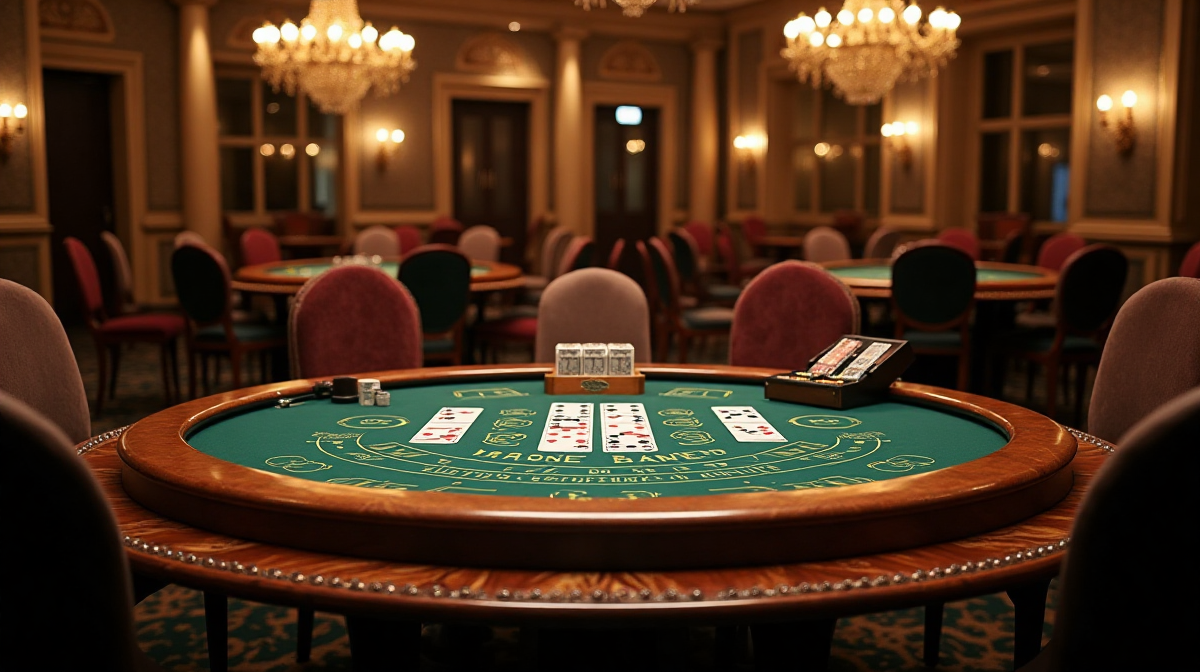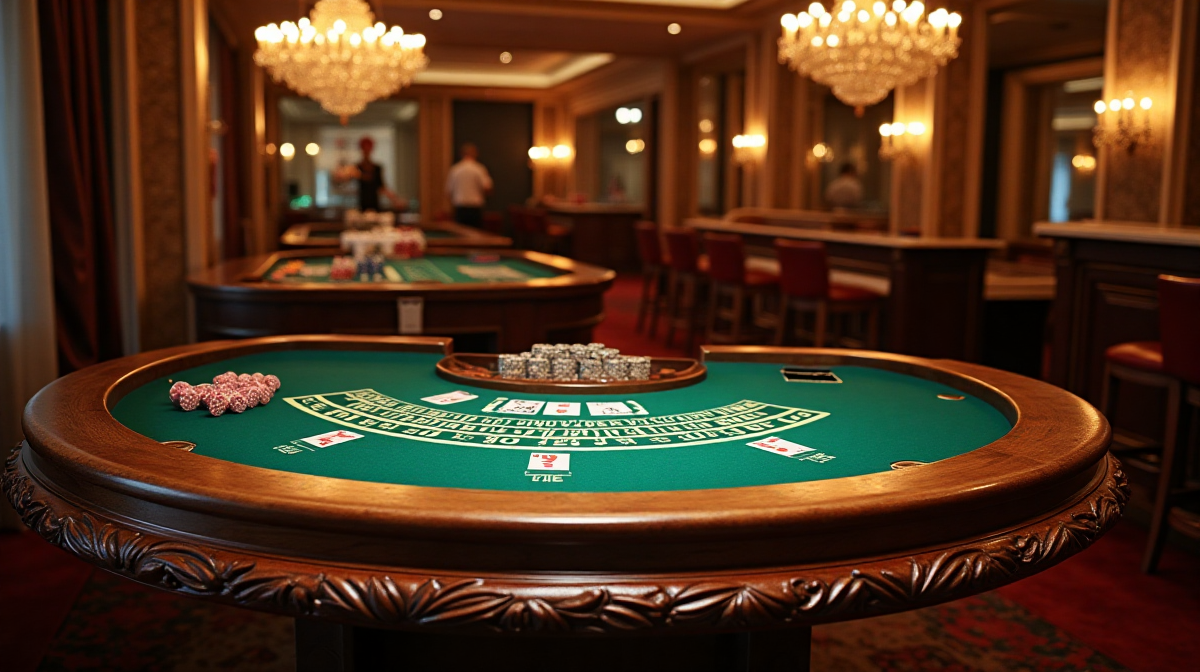Baccarat: Beginner's Guide - How to Play?
Introduction to Baccarat
What is Baccarat? A Brief History
Baccarat, a card game steeped in history and elegance, originated in Italy during the 15th century. Legend attributes its creation to a Florentine banker who desired a game for the aristocracy. The game quickly spread to France, becoming a favorite pastime of the royal court, particularly King Charles VIII. Over time, it evolved and travelled, eventually captivating gamblers worldwide. Today, the allure of Baccarat persists, both in the luxurious settings of brick-and-mortar casinos and the convenience of online platforms. Many enthusiasts actively seek resources like 4bet predictions tomorrow to enhance their gameplay.
Why is Baccarat Popular?
The enduring popularity of Baccarat stems from its simplicity and sophistication. Unlike games requiring complex strategies, Baccarat is relatively easy to learn, making it accessible to beginners. Yet, it retains an air of exclusivity and high-stakes excitement, appealing to experienced gamblers. The rapid pace of the game and the potential for substantial payouts contribute to its allure. Furthermore, the rise of online casinos has broadened its reach, allowing players to enjoy Baccarat from anywhere with an internet connection. New players often begin with a 4bet sign up to take advantage of introductory offers.
Baccarat Variations: Punto Banco, Chemin de Fer, Baccarat Banque
While several Baccarat variations exist, Punto Banco is the most prevalent, particularly in North American casinos. It’s a straightforward version where players bet on either the Player or the Banker hand, and the dealer manages all the dealing and payouts. Chemin de Fer, popular in Europe, allows players to take turns being the banker. Baccarat Banque is another European variant with specific rules governing the banker’s role and commission. Regardless of the variation, understanding the core principles of how to play baccarat remains crucial.
Understanding the Basics – The Goal & Card Values
The Objective of the Game: Player vs. Banker
The fundamental objective of Baccarat is to predict which of two hands – the Player or the Banker – will have a total closest to nine. Players don’t play against each other; they bet on whose hand will win. The dealer manages both hands according to a fixed set of rules.
Card Values in Baccarat
Card values in Baccarat are remarkably simple. Aces are worth one point, cards two through nine retain their face value, and all ten-value cards (10, Jack, Queen, King) are worth zero.
Understanding the Scoring System – Focus on the 'Modulo 10' rule.
Calculating hand totals involves adding the values of the cards. However, a unique “modulo 10” rule applies. If the total exceeds nine, only the units digit is considered. For example, a hand with a 7 and an 8 totals 15, but its Baccarat value is 5. This ensures all hand totals fall between 0 and 9.
Natural Wins - What they are & how they affect gameplay.
A natural win occurs when either the Player or the Banker is dealt a hand totaling 8 or 9 with their first two cards. If a natural win occurs, the hand with the higher natural total wins immediately. If both hands have a natural, the higher natural wins. A natural win results in a payout, and no further cards are dealt.
The Gameplay: Step-by-Step Guide
The Deal: How Cards are Distributed to Player & Banker
A Baccarat game begins with the dealer dealing two cards face up to both the Player and the Banker. The cards are typically dealt from a shoe containing multiple decks.
The First Card Deal – Explained for both Player & Banker
The dealer alternates dealing cards, one to the Player, then one to the Banker, and so on, until each hand has two cards.
The Third Card Rule: Player’s Hand
The Player’s hand receives a third card under specific conditions: if the Player’s initial total is 6 or 7, they stand. If the initial total is 0-5, the Player draws a third card, unless the Banker has a natural.
The Third Card Rule: Banker’s Hand
The Banker’s third card rule is more complex. The Banker’s decision to draw a third card depends on their initial total and the value of the Player’s third card (if drawn). Generally, if the Banker's total is 0-2, they draw unless the Player’s third card is an 8. If the Banker’s total is 3, they draw unless the Player’s third card is an 8 or 9. And so on. These rules are strictly followed by the dealer. Those looking for an edge might explore the complexities of 4Bet, but remember Baccarat is largely a game of chance.
Following the Flow of a Baccarat Round
A typical round unfolds with betting, the initial deal, potential third card draws, the determination of the winning hand, and finally, payouts.

Betting Options Explained
Betting on the Player
Betting on the Player means you're predicting the Player hand will have a total closest to nine.
Betting on the Banker
Betting on the Banker means you're predicting the Banker hand will have a total closest to nine. A commission (typically 5%) is deducted from Banker wins.
Betting on a Tie
Betting on a Tie means you're predicting both the Player and Banker hands will have the same total. This bet has the highest payout but the lowest probability of winning.
Understanding the Payouts & Commission on Banker Wins
Player bets typically pay 1:1. Banker bets also pay 1:1, but a 5% commission is deducted from winnings. Tie bets usually pay 8:1 or 9:1.
House Edge for each bet
The house edge for the Player bet is approximately 1.24%, for the Banker bet around 1.06% (after commission), and for the Tie bet a significant 14.36%.
Baccarat Strategy – Is it Possible to Win?
Debunking Myths: Can you actually 'beat' Baccarat?
Despite claims to the contrary, Baccarat is primarily a game of chance. While betting systems exist, they cannot overcome the inherent house edge.
Statistical Analysis – Why patterns aren’t reliable.
Baccarat hands are independent events. Past results do not influence future outcomes. Attempts to identify patterns are generally futile.
Money Management Tips for Baccarat
Effective bankroll management is crucial. Set a budget and stick to it. Avoid chasing losses.
Common Baccarat Betting Systems : Pros & Cons.
The Martingale system involves doubling your bet after each loss, aiming to recover losses with a single win. It’s risky as it requires a large bankroll and can lead to significant losses. The Paroli system involves increasing your bet after each win, aiming to capitalize on winning streaks. It’s less risky than Martingale but still doesn’t guarantee profits.

Baccarat Etiquette and Terminology
Common Baccarat Terms
- Shoe: The container holding the decks of cards.
- Croupier: The dealer.
- Pass: Refers to the turn to deal cards.
- Banco: The Banker.
- Barred: When a player is no longer allowed to bet.
Casino Etiquette When Playing Baccarat
Be respectful of other players and the dealer. Avoid touching the cards.
Online Baccarat Terminology & Interface
Online Baccarat interfaces typically display betting areas, card values, and game history.
Playing Baccarat Online
Choosing a Reputable Online Casino for Baccarat
Ensure the online casino is licensed and regulated, offers secure payment methods, and provides fair gameplay.
Live Dealer Baccarat vs. Software-Based Baccarat
Live Dealer Baccarat offers a more immersive experience with a real dealer streamed live. Software-based Baccarat is faster and often more affordable.
Mobile Baccarat Gaming
Many online casinos offer mobile Baccarat apps or mobile-optimized websites.
Bonuses & Promotions for Baccarat Players
Look for welcome bonuses, deposit bonuses, and other promotions specifically for Baccarat players.
Frequently Asked Questions
What is the best bet in Baccarat?
Statistically, betting on the Banker offers the lowest house edge, making it the most favorable bet, despite the commission.
What’s the difference between Baccarat and Mini-Baccarat?
Mini-Baccarat is a simplified version with fewer players and lower table limits.
How does the commission on Banker wins affect my profits?
The 5% commission reduces your winnings on Banker bets, slightly increasing the house edge compared to the Player bet.
Is Baccarat a game of skill or chance?
Baccarat is primarily a game of chance. While understanding the rules is essential, there's little a player can do to influence the outcome.
Where can I find more resources to learn Baccarat?
Numerous websites and books provide detailed information on Baccarat strategy and gameplay. Exploring sites offering aussergewoehnliche stucke baccarat (exceptional Baccarat pieces - relating to strategy guides) can also be beneficial.


